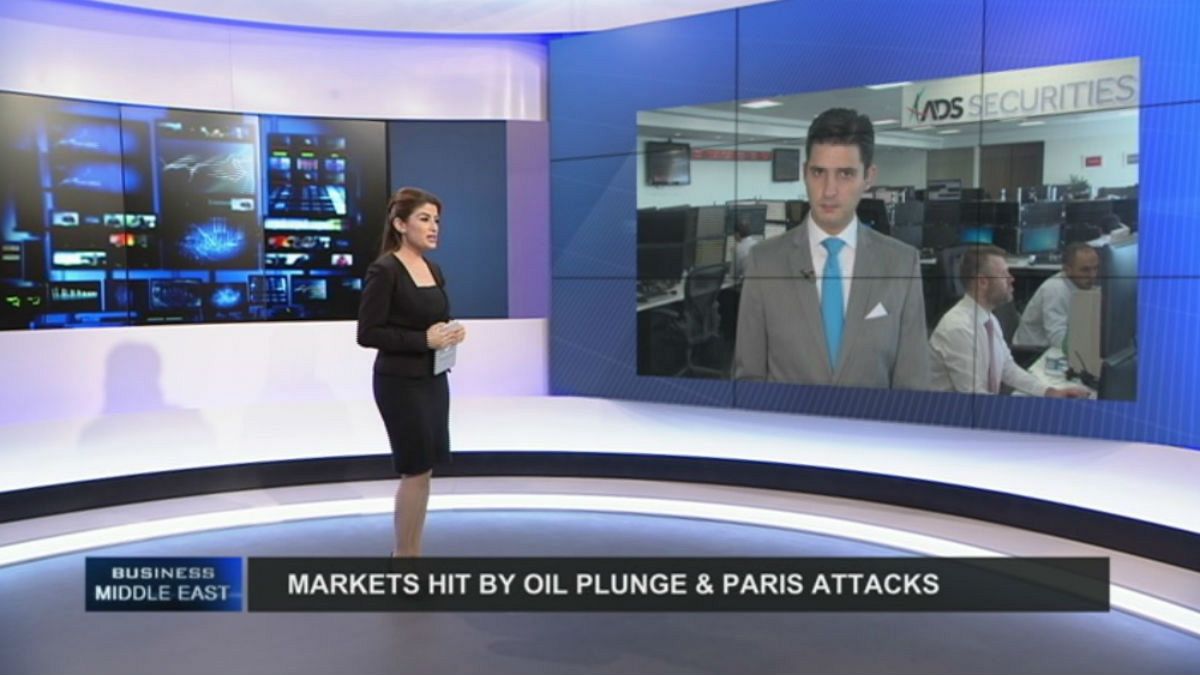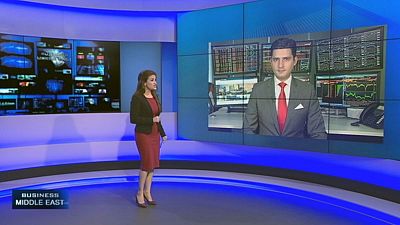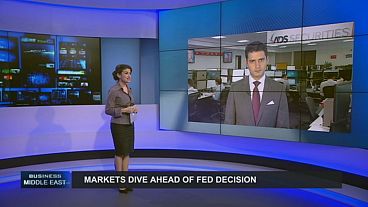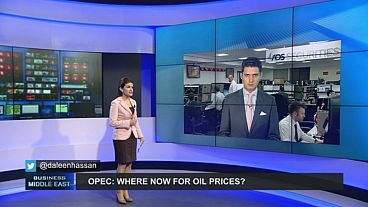In this edition of Business Middle East we focus on the recent movements in the oil and stock markets. Due to conflicting global economic figures and
In this edition of Business Middle East we focus on the recent movements in the oil and stock markets.
Due to conflicting global economic figures and a lack of clarity in the Federal reserves’ intentions on interest rates, the oil market continues to flop.
Last week, oil prices recorded the worst weekly drop since last March. The high-performing Middle East and North Africa markets were hit as well, opening the week with losses affected by the bloody terrorist attack in Paris.
The question now is what are the safe havens that investors could head to amid a state of instability in the stock market and oil?
Oil and growth confusion drags prices down
A wave of falls dragged oil prices down to record a loss of 8% last week. On Friday WTI fell to the levels of $40.74 a barrel and Brent crude dropped to just below $45 a barrel.
Many factors contributed to the oil price decline, notably the worsening US inventories numbers, which rose over seven weeks in a row, something not seen since the beginning of this year and the monthly International Energy Agency report, which pointed out the possibility of oil stocks remaining high because of estimates for a mild winter in Europe and America, which could impose more price pressure.
Finally there are more signs of instability and further slowing, including in China, where GDP growth dipped below 7%.
Also, EU growth rates in the third quarter fell short of expectations at 0.3%. They had been expected to grow by 0.4% at least.
These factors have caused a fall in global stocks. Wall Street ended last week with its biggest loss since last August amid concern about when the Federal Reserve Bank intended to raise interest rates, and European stocks fell as well because of a lack of clarity regarding economic performance.
In the MENA markets, the Egyptian Stock Exchange recorded its lowest close since December 2013 and closed on Sunday nursing a decline of 4.18%.
Dubai fell by 3.59%, the Saudi general index fell to its lowest level in 35 months and closed on Sunday down by 2.85 percent. Then Abu Dhabi lost 2.04%.
Declines in these markets at the beginning of the week were caused by the terrorist attack in Paris, and by getting caught up in the wave of declines due to the oil market confusion.
http://www.bloomberg.com/news/articles/2015-11-12/asian-futures-show-stocks-to-fall-after-oil-slump-fed-hit-u-s-
http://www.theguardian.com/business/live/2015/nov/13/eurozone-gdp-growth-figures-france-germany-greece-live
http://in.reuters.com/article/2015/11/13/oil-iea-idINKCN0T215120151113
International instability drives dollar up while economy stutters
To shed more light on oil and stockmarket developments joining us every week is Nour eldeen al-Hammoury, chief market strategist at ADS securities in Abu Dhabi.
Nour eldeen al Hammoury :
“Despite the sharp decline last week, Oil prices remain within the same range since August, between 40$ and 45$ for West Texas Crude.
The good thing is that WTI crude held at $40 and closed the week above that level. Moreover, during the first trading day of the week, Crude rallied by more than 0.7%, WTI advanced above $41 and Brent Crude is trading near $45. In the meantime, the $40 level in WTI crude is a psychological barrier.
A break through that support would increase the fears for further declines ahead. However, we need
to point out a very important point here.
The current scenario seems to be the same as what happened to commodities and the global markets between the period of June to September, when the markets were pricing in a rate hike by the Fed, leading to a sharp decline in commodities and equities, while the US Dollar rallied.
In the meantime the US economic figures remain weak. However, the Federal Reserve remarks will remain the main driver of the markets from now until the Fed meeting in December.”
Daleen Hassan, euronews:
“Ok Nour, the FED continues to postpone the rate hike. Could the global economy afford for the FED to raise interest rates?”
Nour eldeen al Hammoury :
“Earlier this week, Japan slid back in to a recession and this is the fourth consecutive recession in the past five years.
The US growth rate has stuck below the Fed’s annual target at 2.5% since 2009. Right now the annual growth rate average is around 1.5% since that time. This is despite the fact that the interest rate is at a more than seven year low.
The question is, if the US economy is unable to achieve its annual target with a lower interest rate, then how will it achieve it when rates rise? At least there is no sign of inflation in addition to further signs of slowing down, whether in Europe, Asia and the US.”
Daleen Hassan euronews:
“In the Middle East, and before the Paris attack, we noticed a decline in the stock market in addition to the low oil price. What are the safe havens that investors could head to in the current period?”
Nour eldeen al Hammoury :
“So far everyone is favoring the US Dollar and the Japanese Yen. This is what we have noticed since the beginning of the year.
The decline in MENA equities comes from weak corporate earnings, declining oil prices and for sure the Paris attack that affects the markets negatively. Ours was the first market to trade after the Paris attacks and we saw increased fears among investors for further intervention in the region, which has also effected all global markets,
We noticed a notable move toward the Dollar and the Yen and we believe this might last for sometime.”
Of course, you can join us on euronews social media, Facebook or Twitter using Hashtag #BUSINESSMiddleEast, or on the euronews website.



